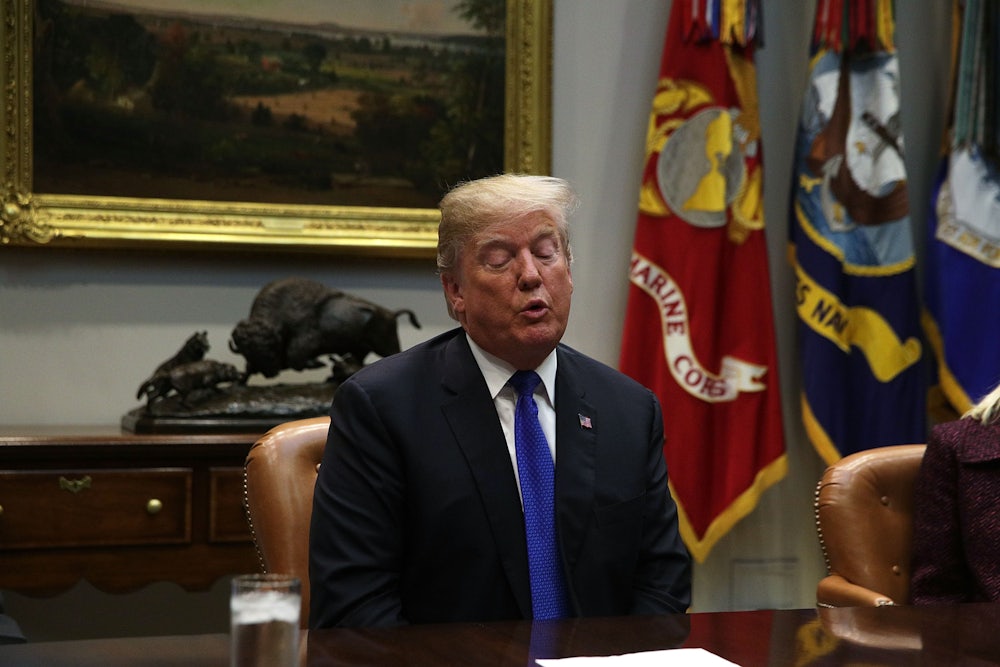On Wednesday, the Trump administration announced that it was ending its Kris Kobach-led investigation into voter fraud. “Despite substantial evidence of voter fraud, many states have refused to provide the Presidential Advisory Commission on Election Integrity with basic information relevant to its inquiry,” Trump said in a statement on Wednesday. “Rather than engage in endless legal battles at taxpayer expense, today I signed an executive order to dissolve the commission, and have asked the Department of Homeland Security to review these issues and determine next courses of action.”
The commission began after Trump claimed that he lost the popular vote in the 2016 election because millions voted illegally, despite there being no evidence of widespread voter fraud (and little evidence of any voter fraud at all). The commission was undercut from the start because Kobach demanded that states, which administer elections, hand over reams of sensitive information, including social security numbers. The opposition to the panel was bipartisan: 44 states refused to hand over information to Kobach.
This lack of cooperation essentially meant that the commission was doomed. Based on a conspiracy theory, it represented an expensive and unpopular investigation of a non-issue. But Trump has used the decision to disband the panel to bolster his argument that voter fraud is widespread.
Many mostly Democrat States refused to hand over data from the 2016 Election to the Commission On Voter Fraud. They fought hard that the Commission not see their records or methods because they know that many people are voting illegally. System is rigged, must go to Voter I.D.
— Donald J. Trump (@realDonaldTrump) January 4, 2018
As Americans, you need identification, sometimes in a very strong and accurate form, for almost everything you do.....except when it comes to the most important thing, VOTING for the people that run your country. Push hard for Voter Identification!
— Donald J. Trump (@realDonaldTrump) January 4, 2018
Again, 44 states, including Republican ones, refused to cooperate with the commission. The end of the commission is undoubtedly a victory, since Kobach would have used it to push for national laws designed to suppress voters. But it’s clear that Trump and other Republicans will continue to use voter fraud as an excuse to try to pass restrictive laws at the state level.
